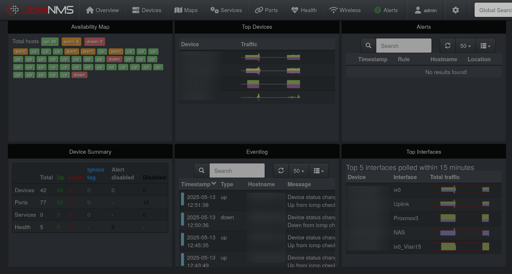

Hey good for you, that’s awesome! My home network is also dual stacked.
You’re right about the apples to oranges comparison, but it’s not so wildly off, because the commentary is on adoption of new standards, regardless of bolt-on “fixes.” Unauthenticated SNMP went through three revisions prior to adding authentication and encryption support.














I rely heavily on grafana and Prometheus for metrics, but am not familiar with suzie-q, so I’ll have to check that out. Agreed though, LibreNMS is great, even if a bit old school.